If you're planning on getting pregnant, you should start changing your diet now. In reality, eating a nutritious diet before getting pregnant can increase your fertility, lower your risk of birth defects like spina bifida, and even lessen your risk of having preeclampsia during pregnancy.
Diets rich in unsaturated fat, whole grains, veggies, and seafood may boost fertility, and they may also help you have a safe pregnancy.
The process of conception cannot be aided by any specific meals, but you can boost your fertility by including wholesome selections from the following food groups in your diet.
1. Vegetables and Fruits
When preparing for pregnancy, fill your dish to the brim with fruits and vegetables. Make fresh fruits and vegetables on the majority of your plate at each meal.
According to Alisa Vitti, integrative nutritionist and author of WomanCode: Perfect Your Cycle, Amplify Your Fertility, Supercharge Your Sex Drive, and Become a Power Source, "Watermelon and asparagus, in addition to other raw fruits and vegetables, give the body a rich supply of glutathione, which is important for egg quality."
Kale also known as Efo Igbo is another superfood vegetable since it has nutrients essential for the metabolism of estrogen.
Even though it's ideal to eat the fruit or vegetable whole, Vitti advises juicing kale and other greens if you don't like raw vegetables. Since goji berries include phytochemicals that are good for fertility, she loves advising patients to make fresh juices that are primarily made of vegetables.
Vegetables can be microwaved or roasted at high heat for a brief period of time without any water to prevent nutrient loss.
2. Fats
Any diet that is balanced should include healthy plant-based fats in moderation. Olive oil, grapeseed oil, avocados, nuts, and other anti-inflammatory foods can help the body heal and encourage regular ovulation and female fertility.
Some fats might even help those who are really having trouble getting pregnant. In comparison to women who don't consume healthy plant-based fats at that time, studies have shown that eating a specific amount of monounsaturated fats—such as those found in avocados during an IVF cycle raised the success rate by three and a half times.
It can also be beneficial to consume more unsaturated fats and less trans fats, which are the kind that is present in packaged meals and processed snacks like French fries.
Trans fats make you more resistant to insulin. Resistance makes it more difficult for glucose to enter cells from the bloodstream, despite the assistance of insulin.
The pancreas continues to produce more insulin, which increases the amount of insulin in your bloodstream. It is important to concentrate on foods that protect against insulin resistance when developing a fertility diet because high insulin levels result in numerous metabolic disruptions that impair ovulation.
3. Diary Products
According to one of the study's authors, Walter Willett, M.D., a professor of nutrition and epidemiology at the Harvard School of Public Health, the more low-fat dairy products a woman consumed, the harder it was for her to conceive.
This is because, in comparison to high-fat dairy, a large intake of low-fat dairy has been proven to increase the incidence of ovulatory infertility.
On the other hand, if you're still having difficulties getting pregnant, you might wish to limit dairy entirely in your diet plan for fertility. According to Vitti, "We're exposed to dairy in huge amounts that is more hormonally-driven, meaning the production of cow dairy has become extremely chemically managed."
The brain is trying to communicate with the endocrine system, in especially your ovaries, but these excess hormones may be interfering. Just be sure, if you want to temporarily give up dairy, to speak with your doctor about the best ways to supplement your calcium intake.
Increased yogurt consumption is also an excellent option, preferably Greek-style or homemade. Why? The probiotic microorganisms might improve the health of the unborn child.
4. Carbohydrates with a High Degree of Complexity
Limit highly processed carbs and aim to integrate more complex ("slow") carbs to boost fertility. Refined carbohydrates (such as white bread, white rice, cookies, and cakes) are readily absorbed by the body and converted to blood sugar.
Studies have shown that high insulin levels seem to prevent ovulation, and the pancreas releases insulin into the bloodstream to reduce the blood-sugar surge.
Complex carbohydrates are absorbed slowly and have a more progressive impact on blood sugar and insulin levels than simple carbohydrates (those devoid of fiber, such as fruits, vegetables, legumes, and whole grains). Additionally, barely refined grains are a fantastic source of fiber, vitamin E, and fertility-friendly B vitamins.
Reducing gluten intake may also be suggested for some persons, especially those with hormonal conditions like polycystic ovary syndrome (PCOS). Before making any significant dietary changes, you should consult your doctor. It would be best if you also had a plan for your meals that excludes gluten.
More complex carbohydrates, such as brown rice, should make up a quarter of your dish. It might also be beneficial to branch out from your usual fare of rice and pasta and try some more unusual whole grains like quinoa, amaranth, and millet.
They'll support healthy blood sugar levels and help you feel fuller for longer, both of which are crucial for conception.
5. Protein
Trimmed of extra fat, chicken, turkey, pig, and beef are excellent providers of zinc, iron, and protein, all of which are necessary building blocks for a healthy pregnancy.
On the other hand, the excessive saturated fat present in animal protein may be connected to problems with conception, per a study on diet and conception.
Seafood protein sources might be healthy alternatives. For example, coldwater fish like salmon, canned light tuna, and sardines are great sources of DHA and omega-3 fatty acids; they also assist in the development of the baby's nervous system and lower the risk of early birth, so why not start before conception?
However, some species, like king mackerel, shark, swordfish, and tilefish, are best avoided because they are known to have greater levels of mercury.
Another potent source of protein in a diet for fertility is eggs. You can choose plant protein while choosing foods that promote conception (from beans, nuts, seeds, and tofu). They contain good fats and have few calories, which can be advantageous for pregnancy if losing weight has been advised for you as a pre-conception step.
According to a study in Nutrients, when 5% of your total calorie intake comes from plant proteins, your risk of ovulatory problems is reduced by 50%. The Harvard Public Health study also discovered that those who consumed the most animal protein were 39% more likely to have infertility. Beans, as well as nuts, seeds, and other legumes like lentils and chickpeas, are excellent sources of protein.
So preggy mums and soon-to-be preggy moms, why not join this train of eating healthy and having healthy children? It's better late than never!!


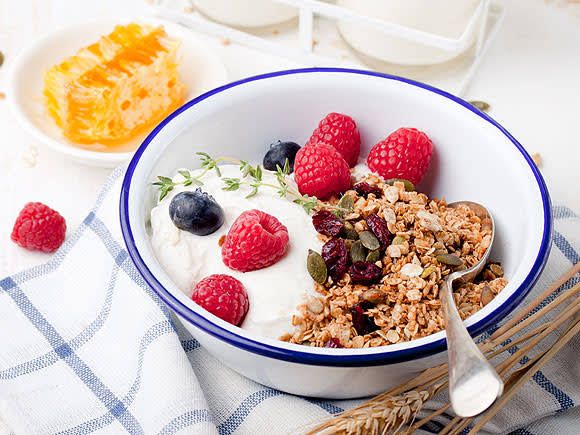

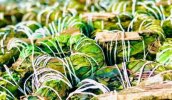
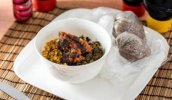

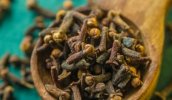

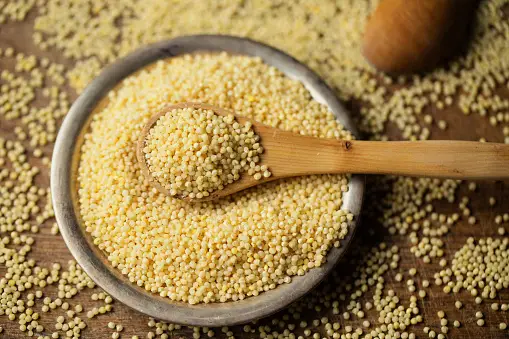
Comments